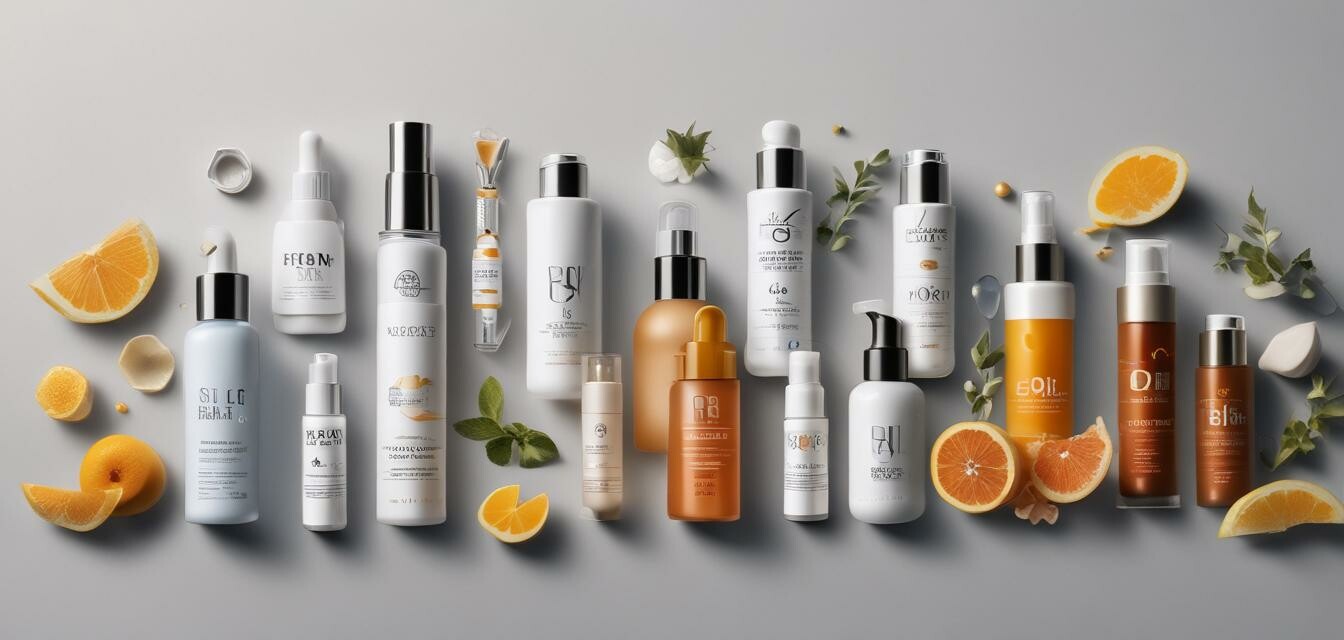
Understanding Anti-Aging Ingredients: What to Look For
Key Takeaways
- Focus on ingredients like retinol, hyaluronic acid, and antioxidants.
- Essential oils can provide hydration and nourishment.
- Natural ingredients can be effective in anti-aging skincare.
- Understanding product labels is crucial for making informed choices.
- Consistency in your skincare routine yields better results.
With the ever-growing range of skincare products available, it can be daunting to choose the right anti-aging solutions. Understanding the key ingredients that contribute to youthful skin can help you make informed decisions. This article will break down the essential anti-aging ingredients, their functions, and what to look for on product labels.
What Are Anti-Aging Ingredients?
Anti-aging ingredients are specific elements found in skincare products that aim to combat signs of aging such as wrinkles, fine lines, and uneven skin tone. These ingredients can be natural or synthetic and vary in effectiveness based on individual skin types and concerns.
Essential Anti-Aging Ingredients
When browsing the aisle of skincare products, watch for these ingredients:
| Ingredient | Description | Benefits |
|---|---|---|
| Retinol | A derivative of Vitamin A | Promotes cell turnover, smooths fine lines, and unclogs pores. |
| Hyaluronic Acid | A naturally occurring substance | Provides intense hydration and plumps the skin. |
| Vitamin C | An antioxidant vitamin | Brightens skin tone and reduces the appearance of dark spots. |
| Peptides | Short chains of amino acids | Stimulate collagen production and improve skin elasticity. |
| Alpha Hydroxy Acids (AHAs) | Natural acids from fruits | Exfoliate the surface skin and improve texture. |
| Essential Oils | Natural plant extracts | Can provide nourishing and calming effects on the skin. |
Understanding the Role of Antioxidants
Antioxidants are crucial for fighting oxidative stress, which can lead to premature aging. Look for products containing:
- Green tea extract
- Coenzyme Q10
- Resveratrol
How to Read Product Labels
Knowing how to read product labels effectively can lead to better choices. Keep these tips in mind:
- Identify the active ingredients: They are usually listed near the top of the ingredient list.
- Check the concentration: Look for higher percentages of key ingredients for effectiveness.
- Avoid harmful additives: Steer clear of parabens, sulfates, and synthetic fragrances.
- Research: Always look up unfamiliar ingredients to learn more about their benefits and safety.
Natural vs. Synthetic Ingredients
Many anti-aging products contain both natural and synthetic ingredients. Natural ingredients, like herbal moisturizers, often have a gentler effect on the skin. Explore more about natural alternatives in our Herbal Moisturizers category.
Evaluating Product Effectiveness
To evaluate whether an anti-aging product is effective, consider these factors:
- Reviews from other users
- Timeframe for results—most products may take weeks to show visible changes
- Complimentary ingredients that work synergistically
Pros of Anti-Aging Ingredients
- Help in reducing visible signs of aging.
- Promote smoother and more radiant skin.
- Can improve skin texture and elasticity.
Cons of Anti-Aging Ingredients
- Some ingredients may cause irritation for sensitive skin.
- Results vary depending on individual skin types.
- May require consistent use for desired results.
Incorporating Anti-Aging Ingredients into Your Routine
To effectively incorporate these ingredients into your skincare routine, consider the following tips:
Tips for Beginners
- Start with one or two active ingredients at a time to monitor how your skin reacts.
- Use sunscreen daily to protect against UV damage.
- Consider a consistent nighttime regimen to promote repair while you sleep.
- Stay hydrated to support overall skin health.
Consistency is Key
Achieving youthful skin is not an overnight process. Consistency in using the right products will yield better results over time. Keep exploring our Tips and Tricks on how to maintain a healthy skincare regimen.
Final Thoughts
Choosing the right anti-aging products begins with understanding the ingredients that work for your skin type. With a bit of research and attention to product labels, you can create an effective skincare routine that tackles the signs of aging while supporting your skin's health. Always remember, a proactive approach will go a long way in maintaining youthful skin.
